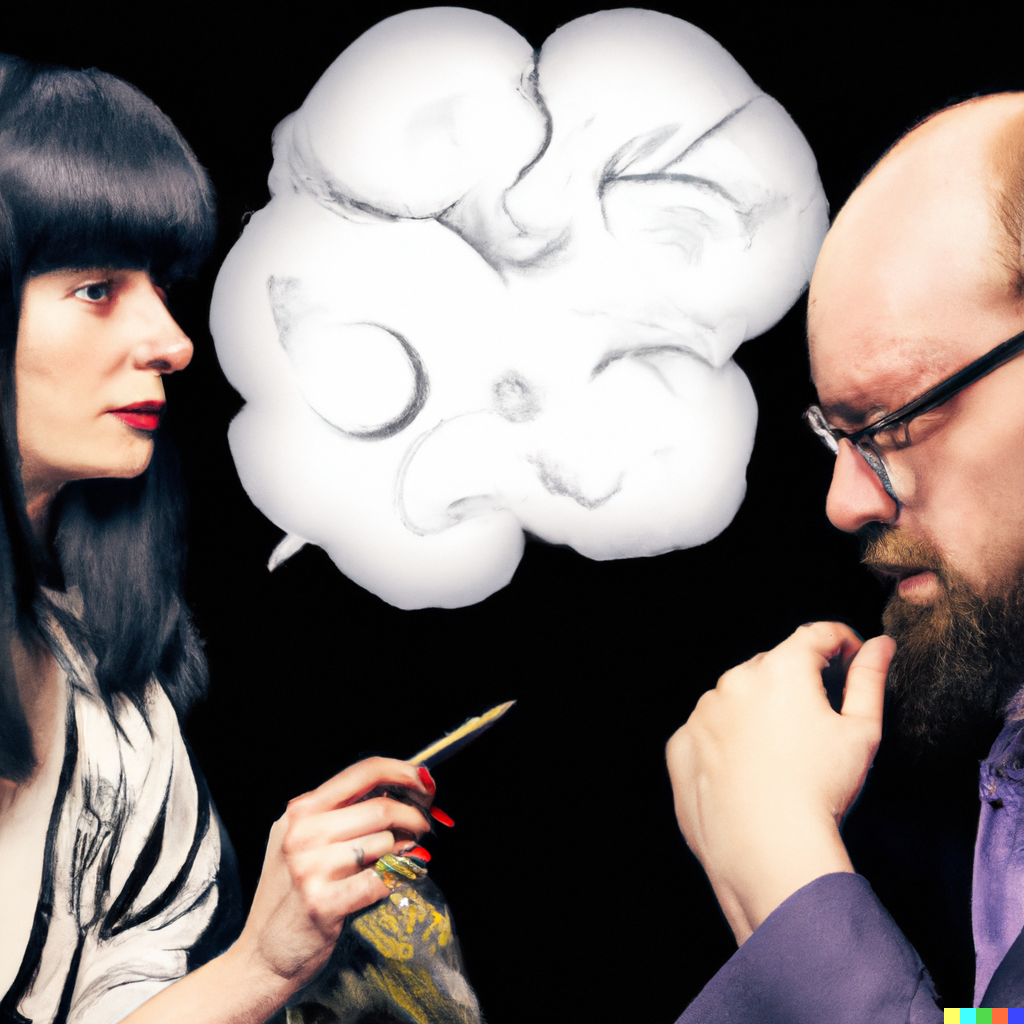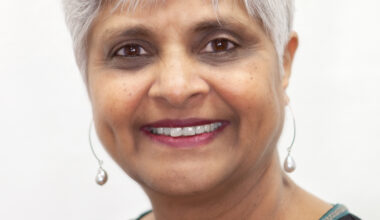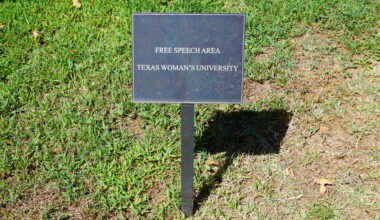
2023 has been an eventful year for free thought, humanism and secularism. Below, Emma Park and Daniel James Sharp look back on some of the major issues that have been debated in the Freethinker this year.
I. Free speech, religion and the culture wars
Free thought and intellectual progress are not possible without a shared culture of free speech, open debate and a willingness to engage with different points of view. One of the Freethinker’s concerns this year has been with attempts to repress free speech, especially in the UK and elsewhere in the English-speaking world, and in the context of the ‘culture wars’.
In Ireland, a new bill on hate offences threatens to undermine free speech, not just about religion but on a variety of the most sensitive topics – in other words, topics on which open debate is crucial. In Wakefield, England, in February, a non-Muslim woman, presumably under pressure, donned a veil and made a humiliating public apology in the local mosque, because her autistic son had brought a copy of the Quran into school and it was accidentally scuffed. And Puffin has made attempts to censor Roald Dahl in the name of ‘sensitivity’.
Free speech at universities also remains under pressure, as illustrated by the case of Professor Steven Greer, who was hounded by Bristol University Islamic Society in a smear campaign that was supported by academic colleagues who should have known better. Daniel reviewed Greer’s book about his experiences.
Across the pond, Professor Alex Byrne’s contract for a book critical of gender identity ideology was cancelled by Oxford University Press, but has since been published by Polity. From a different perspective, former vice chancellor Julius Weinberg argued that ‘freedom of speech is not as simple as my right to express my ideas’.
To supporters of democracy in Hong Kong, the culture wars are all but an irrelevance. The suffocating control of the Chinese Communist Party, said Kevin Yam, forced campaigners across the political spectrum to work together.
II. Science, philosophy, and humanism
As well as exploring the issues of the day, the Freethinker has also explored some of their deeper philosophical and historical contexts.
We interviewed the philosopher Daniel C. Dennett about the relationship between philosophy and science, meaning and consciousness in a godless, Darwinian universe, and New Atheism. With historian Charles Freeman, we discussed the richness and variety of the ancient Greek mind and how the coming of Christian orthodoxy put an end to that tradition. And we caught up with the humanist and author Sarah Bakewell to explore different traditions of humanism.
Meanwhile, Matt Johnson and Daniel Sharp both contributed articles about one of the most famous freethinkers of recent years, the late Christopher Hitchens.
III. Islam and free thought
With the rise of Islam in Britain and across the West, it has become urgent to consider how far the religion can be compatible with Western values and approaches. To explore this question, we interviewed Taj Hargey, possibly Britain’s only liberal imam. Other contributors have explored the need to rekindle irreverence for Islam in Muslim thought around the world, why the hijab is not a good symbol for women, and whether it is possible to distinguish between religious and political Islam.
IV. Secularism
Secularism is the principle that religion and state should be separated, and that religion should have no undue influence on public life. In the UK, thanks to a combination of political apathy and entrenched privilege, we still have an established church and unelected clergy in Parliament. Paul Scriven, a Liberal Democrat peer, spoke to the Freethinker about why he introduced a bill to disestablish the Church of England.
With a general election on the cards for 2024, Stephen Evans of the National Secular Society discussed where the political parties stand on faith schools. Two recent events in which the NSS participated revealed some of the challenges involved in secularisation. Daniel also argued in an article for Only Sky that the Church of England’s record on gay marriage is another reason to hasten disestablishment.
Other contributors to the Freethinker have looked at secularism, its history and future, in Québec, Turkey and Wales, and the strengths and weaknesses of French-style laïcité.
Did you know that, while the advancement of any religion, as well as of humanism, is considered a charitable aim under English law, the advancement of free thought, atheism or secularism is not? See Emma’s piece for New Humanist.
V. Israel and Palestine
One of the year’s biggest events—the Hamas attack against Israel on 7 October and the ensuing war—has produced a wide range of often emotional and heated responses. In contrast to all this sound and fury, the Freethinker has published a series of articles dealing with the conflict from different and often disagreeing, but rationally and charitably argued perspectives.
Kunwar Khuldune Shahid wrote about the ‘leftist postcolonial apologia’ for Hamas and argued that the Israel-Palestine conflict is, at root, a religious one, while in Emma’s interview with Taj Hargey, the imam was staunch in his support of the ‘occupied and oppressed’ Palestinians. Hina Husain wrote about her Pakistani upbringing and being inculcated with Islam-based anti-Semitism. Finally, Ralph Leonard responded to all these articles, arguing that the conflict is, in fact, inspired more by competing nationalisms than religious impulses.
VI. Republicanism
Free thought and secularism have been closely intertwined with republicanism in British history. The Freethinker has reinforced this link since its beginnings in 1881.
This year, we have continued in the same spirit of religious and political anti-authoritarianism, publishing a review by Daniel of the republican activist Graham Smith’s anti-monarchy book. Later in the year, Daniel interviewed Graham Smith in person at Conway Hall. Meanwhile, Emma delved into the archives to discover the connection between the Freethinker and Republic, of which Smith is the CEO.
See also Daniel’s article on the republican Thomas Paine’s influence on Christopher Hitchens and Tony Howe’s discussion of an even earlier famous British republican, John Milton.
VII. Free thought history
In June, we were saddened to hear of the death of Jim Herrick (1944-2023), former editor of the Freethinker. Bob Forder, NSS historian, wrote an obituary commemorating Jim’s lifelong dedication to free thought, humanism and secularism.
The composer Frances Lynch wrote a guest post about her rediscovery of Eliza Flower, a radical nineteenth-century composer associated with Conway Hall, who was neglected by the historical record because she was female.
We have also been reflecting on the history of the Freethinker and of the various non-religious movements in the UK. Former editor Nigel Sinnott kindly agreed to let us republish an article he wrote for the magazine in 1970 in which he discussed the complicated historical relationship between humanists and secularists. Historian Charlie Lynch introduced the recent book he co-wrote with two other academics charting the history of organised humanism in Britain, which Emma has also reviewed for New Humanist. And Bob Forder argued that free thought and secularism are inseparable.
VIII. The future of free thought
Artificial intelligence has made great strides in 2023. (We even used Dall-E, a generative AI model, to illustrate this post.) Given the exponential pace of development, it is clear that the implications need to be monitored very carefully. For instance, there are concerns that ChatGPT may be biased in favour of certain interpretations of Islam. And artificial general intelligence (AGI) may be just around the corner, making ethical oversight all the more urgent.
Emma and Daniel spoke about the nature of free thought and the challenges facing it today and in the future on the Humanism Now podcast, on Freethought Hour and to the Reading Humanists. Emma also spoke to the Central London Humanists about Pastafarianism, arguably the world’s fastest growing religion, and a topic about which there is much to say.
This year also saw the publication of two intriguing books about the impact of digital technology on free thought, one by Simon McCarthy-Jones, and another by Laura Dodsworth and Patrick Fagan. Emma interviewed Laura Dodsworth for the Freethinker and reviewed both books for the Literary Review. We will be looking further at the implications of digital technology for free thought in 2024.
Finally, a request for your support…
The Freethinker is an independent, non-profit journal and completely open-access. We are funded by donations and legacies given by generations of readers back to the 19th century – and not by big corporations or billionaires. To keep us going in the future, we depend on the generosity of readers today. If you believe in the importance of fostering a culture of free thought, open enquiry and irreverence, please consider making a donation via this link.
And don’t forget to sign up to our free fortnightly newsletter, to keep abreast of the latest developments in free thought in the UK and around the world.
Postscript: a merry Christmas of sorts from Christopher Hitchens…







Your email address will not be published. Comments are subject to our Community Guidelines. Required fields are marked *
Donate